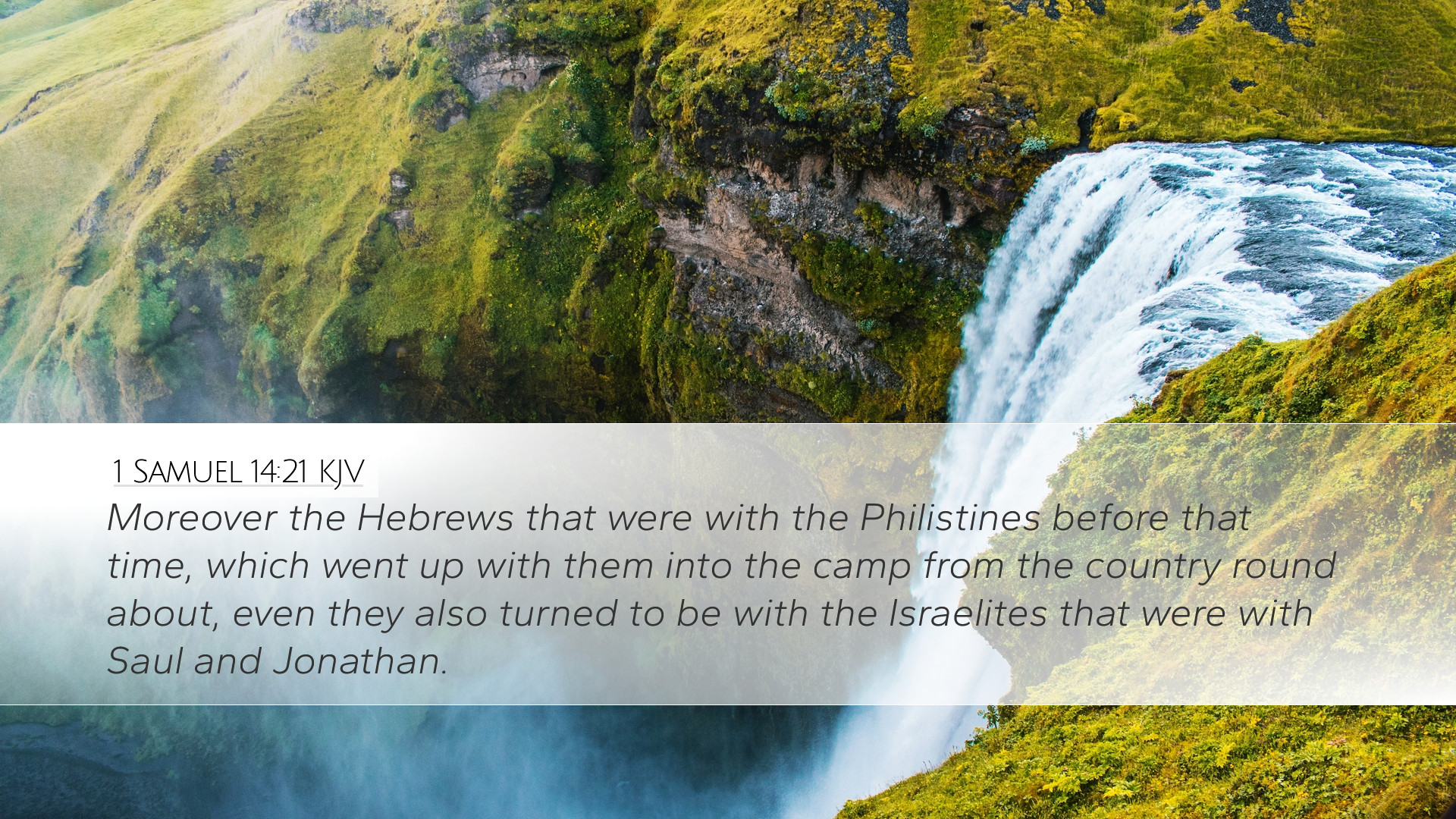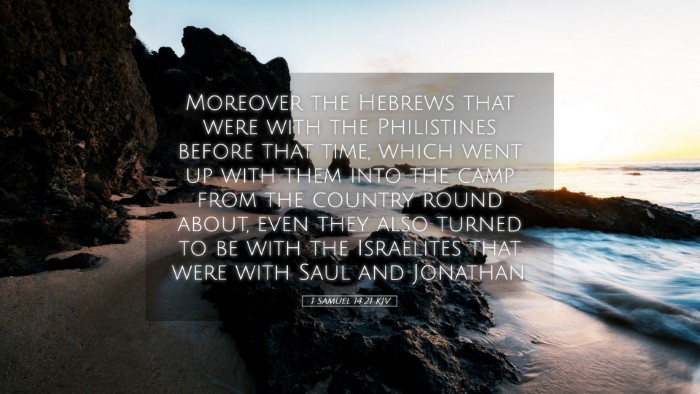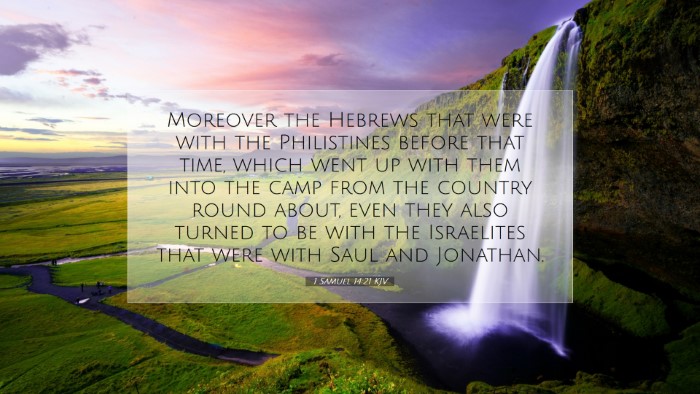Commentary on 1 Samuel 14:21
Verse Context:
1 Samuel 14:21 states, "Moreover, the Hebrews that were with the Philistines before that time, which went up with them into the camp round about, even they also turned to be with the Israelites that were with Saul and Jonathan." This verse occurs during a pivotal moment in the narrative, as it depicts the shifting loyalties among the Hebrews during a tense military engagement.
Historical Background
To fully grasp the implications of this verse, it is crucial to understand the historical backdrop. The Philistines had been oppressing Israel, and the Israelites found themselves divided. Many Hebrews initially joined the Philistine ranks, possibly out of fear, desperation, or the allure of joining what appeared to be a winning side. This verse indicates a significant reversal, as some of these defectors return to support Saul and Jonathan.
Commentary Insights
From Matthew Henry
Matthew Henry emphasizes the providential hand of God at work during this period of conflict. He notes that the defection of the Hebrews showcases the volatility of human allegiance in times of crisis. Henry explains that the return of the Hebrews strengthens Saul’s position against the Philistines, suggesting divine favor in their turn towards the side of righteousness. He implies that such movements are orchestrated by God’s sovereign will, guiding hearts to fulfill His larger plan for Israel's deliverance.
From Albert Barnes
Albert Barnes offers an analytical look at the implications of this verse. He points out that the transition of allegiance indicates a desire for unity among the Israelites, suggesting that loyalty can be influenced by circumstances rather than unwavering principles. Barnes argues that this moment illustrates the essence of God's willingness to reclaim His people. He also draws attention to the communal aspect of faith, indicating that the Hebrews' shift serves as a reminder that faith can be contagious and transformative within a community.
From Adam Clarke
Adam Clarke provides a theological reflection on this passage, stating that the action of the Hebrews signifies repentance and a turning back to God. He frames their return as an act of courage in the face of prior fear and compromise. Clarke stresses the importance of obedience and the recognition of God’s true leadership through Saul and Jonathan. He concludes that this event not only marks a physical alignment but spiritually symbolizes a recommitment to God's covenant and their identity as His chosen people.
Theological Implications
This verse serves as a reminder of God’s mercy and the possibility of redemption and restoration for those who have strayed. It illustrates the dual nature of faith—how it can be shaken by external pressures and yet re-established by divine influence and personal decision. The shift in allegiance can be seen as a microcosm of the broader spiritual truth that God invites His people to return to Him, regardless of past compromises.
Application for Today
- Encouragement for Pastors: This passage encourages ministers to remain steadfast in their duty, understanding that the Lord can change hearts at any moment, calling individuals back to Him.
- For Students of the Bible: Understanding the complexities of loyalty in insecurity can encourage deeper reflections on personal faith and the impacts of community dynamics on belief.
- Theologians’ Reflection: The nature of God’s providence and the interplay between human choice and divine direction in faith journeys offer fertile ground for academic inquiry and preaching.
Conclusion
In summary, 1 Samuel 14:21 marks a critical turning point in the narrative of Israel's relationship with God amidst turmoil. Drawing insights from public domain commentaries reveals layers of meaning that reflect on human behavior and divine intervention. It serves as a poignant reminder of God's unending call to His people, encouraging believers to remain steadfast in faith, even when faced with trials. The commentary further emphasizes the importance of community in faith journeys, allowing for a rich discussion on how collective dynamics can influence individual choices in the pursuit of righteousness.


